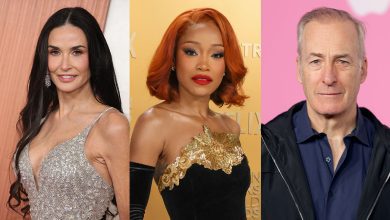In ‘Fellow Travelers,’ Ron Nyswaner Writes About Gay Life In the 1950s. He Also Writes About Himself.
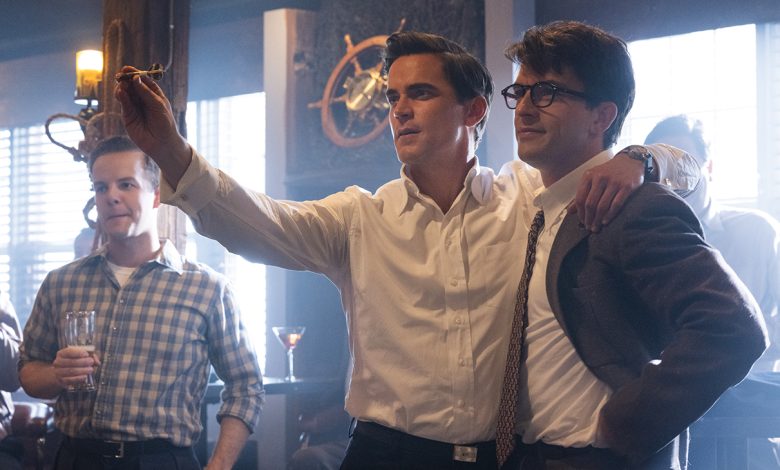
When Fellow Travelers creator Ron Nyswaner thinks back to filming the series, he chokes up. The tears begin to flow as the writer-producer recalls being on set and making history with a series starring four openly gay actors — playing gay characters — along with four proud LGBTQ executive producers working behind the scenes.
“There was a mission to what we were doing on Fellow Travelers,” Nyswaner tells The Hollywood Reporter. “To do right by the people who suffered and who were persecuted, who lost their lives during the Lavender Scare, and do right by the people who died of AIDS and to honor them. It was sacred in a way.
“[Jonathan Bailey] said it to the crew on his last night, when he wrapped. I get choked up,” Nyswaner says, pausing for a second as his eyes water. “He said, ‘It’ll never be like this again.’ And that’s how we all felt.”
In Fellow Travelers, Bailey and Matt Bomer star in the roles of Tim and Hawk, male political staffers who fall in love in the 1950s when gay people were considered national security risks and communist sympathizers, alongside Jelani Alladin as reporter Marcus Gaines and Noah J. Ricketts as drag performer Frankie Hines. Nyswaner, Bomer, Daniel Minahan and Robbie Rogers are executive producers on the Showtime series, which also streams on Paramount+, and it’s a show that has resonated with critics and viewers and earned three Emmy nominations, including acting bids for Bomer and Bailey. Nyswaner is nominated for outstanding writing for a limited or anthology series or movie.
“[Tim and Hawk] might be one of the first gay couples to have a television love story played by two out gay actors, [and] that couple being embraced by audiences on social media and now with the Emmys is really, really powerful,” he says.
Nyswaner, who earned an Oscar nomination for writing 1993’s Philadelphia, began working on Fellow Travelers in 2012, when he moved to Los Angeles to dive into the TV world. He went on to write and produce for Homeland and Ray Donovan, and spent the past four years finishing his passion project, which aired late last year.
Here, Nyswaner discusses his connection to the Emmy-nominated series, a possible spinoff, and his cameo in the show being cut.
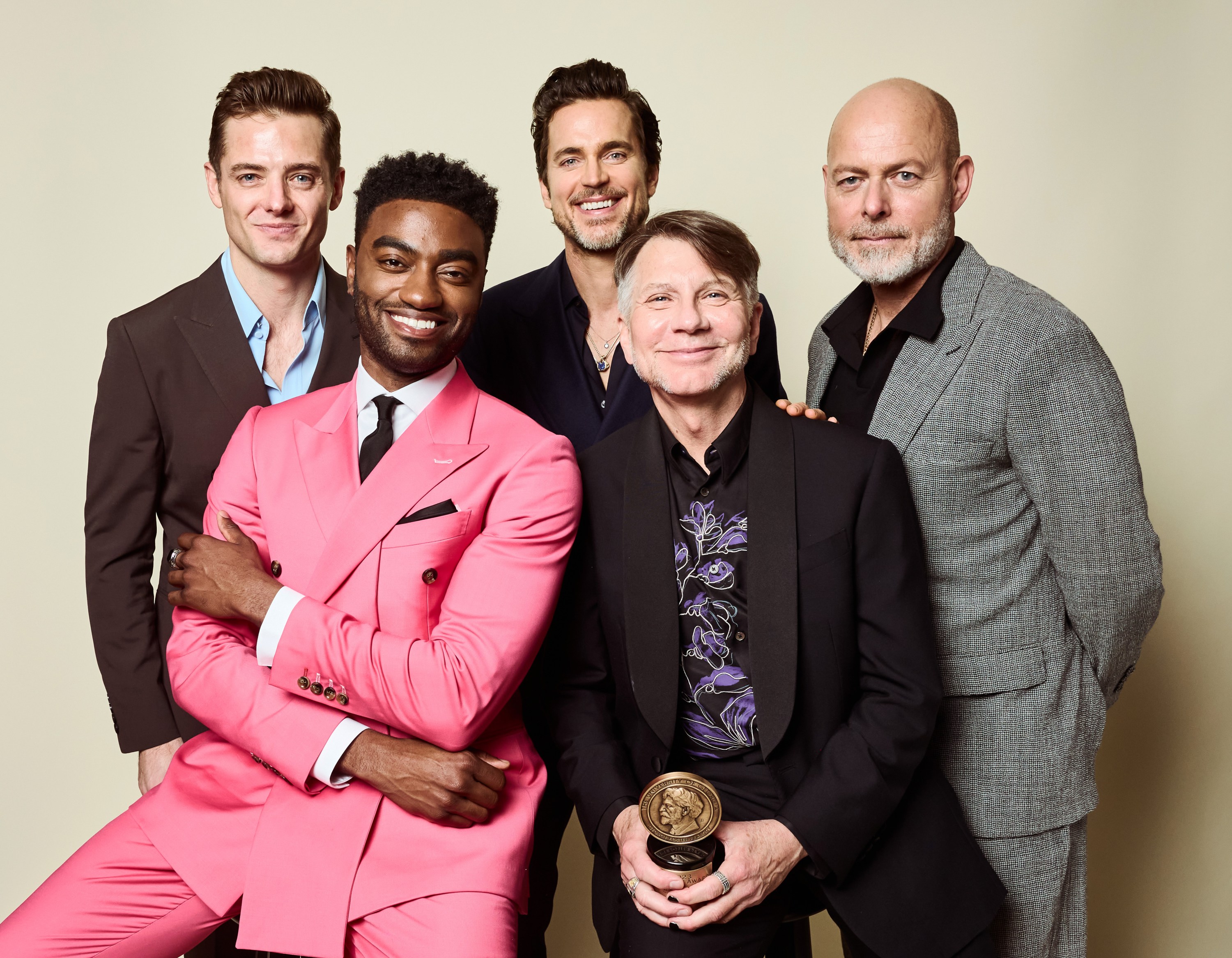
The series has sparked so much chatter and conversation. What have viewers and fans told you?
I’ve had these extraordinary conversations with people who feel that part of their lives was revealed in a way that they’d never experienced before — whether it was somebody telling me about how she could never quite forgive her father for leaving her mother for a man, and that she wishes he was still alive because now she understands him. You’re making me very emotional today. I had a woman write to tell me that her son had died, and you know Hawk loses a child, and she’d never seen that grief expressed as correctly as it was by Matt in that episode. Those are the things that really move me, that people share their personal lives, that the show moves them to do that.
Did you think Jelani and Noah’s gay Black love story would resonate in the way it did?
I was determined that we would bring Black characters forward in Fellow Travelers. They exist only in the show [and aren’t in Thomas Mallon’s book, on which it’s based]. In my research into that era, the ’50s, to see that there was this really vital Black journalism — that really inspired me to have a Black journalist character. And because of Stormé DeLarverie, who was this famous drag performer, drag king, which I’d never known existed, she inspired me to create Frankie. I wanted that culture. It was absolutely essential.
I had a little bit of nervousness about it because, obviously, I’m not Black and there is something about a white creator creating Black characters. But I really worked hard to connect with Black collaborators: my writers [Brandon K. Hines], director [Destiny Ekaragha], crew [key hairstylist Antoinette Julien], and with the actors. Jelani kept a journal that he wrote in Marcus’ voice, and he would come into my office every now and then and read me pages from his journal. I am really proud of that part of our show. And we received the [Social Impact] Award from the African American Film Critics Association.
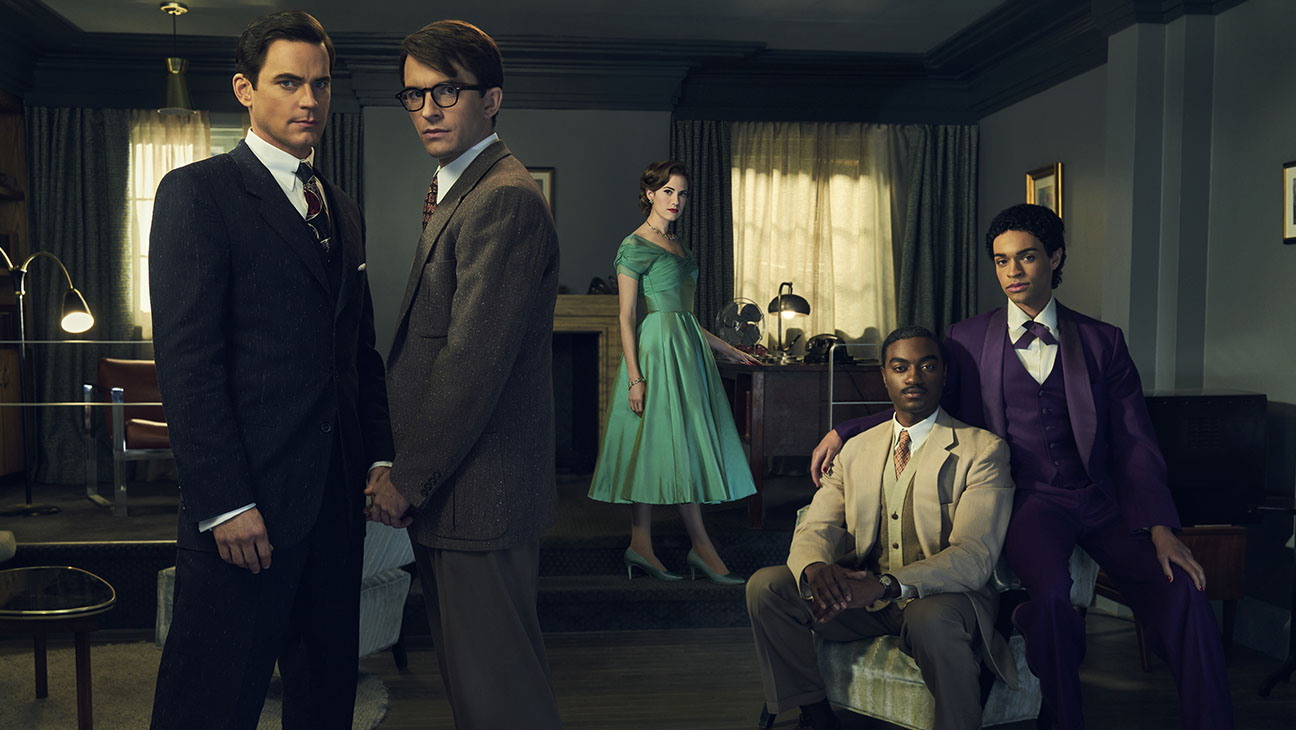
Jelani and Noah’s characters could star in a spinoff.
And we’re going to have all our fans write to Paramount to ask them for it. We’ve been pitching it. They haven’t come through yet, so let’s put the pressure on them.
You made a cameo in Philadelphia as a priest. Did you make a cameo in Fellow Travelers?
It was cut. I did it in episode five. There’s a part where Hawk takes his brother-in-law to a psychiatric hospital, and I was one of the psych patients. Matt comes in, he looks, he kind of even makes eye contact with me, he has the scene, and he leaves. And we didn’t tell Matt that I was going to be in the scene, so we’re all like, “Did he not notice?”
Jonathan Bailey’s Tim drinking milk in the series became a moment. Did you think it was going to resonate when you were writing the series?
No. You never know with those things. When the idea comes up and you say, “What if he makes him drink milk and it dribbles down his chin?” — you’re sitting in the writer’s room thinking that’s either going to be really bad or really good. And it turned out to be really good. And it was Johnny who wanted to take the milk away from Hawk and say, “No, Tim’s going to pour it on himself.” He’s beginning to take power, which he does, and he continues to take power in the sex that follows.
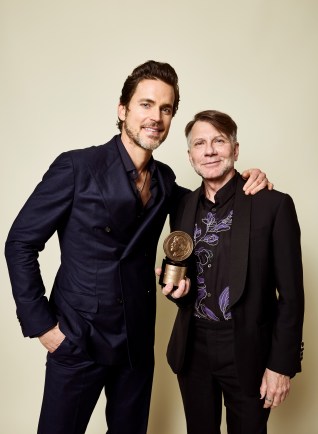
It’s the 20th anniversary of your memoir, Blue Days, Black Nights. When you think about writing that, what goes through your mind?
Matt very kindly wrote a beautiful introduction to the reissue, and I’ve written an epilogue to the reissue that talks about Fellow Travelers in relation to my experiences from that period of my life.
It’s a very distant part of my life. It was a moment when I almost destroyed myself with drugs and alcohol. It’s also the story of a tragic love affair. The things that I do that really do well are things where people die tragically. I guess that’s my motif, that’s my genre. But I am glad I am no longer that person, that I am no longer a slave to alcohol and drugs. I mean, I wouldn’t be here. I didn’t have much longer to live if I hadn’t stopped when I did. But I love the young man that it’s about — the book is about my relationship with this young man, and I still miss him.
Is that something you’d ever adapt for TV or film?
If the right person was interested, I would think about it.
Your first Emmy nomination came in 2016 for Homeland. Does this nomination feel different?
This nomination feels different in the sense that there’s so much of my life that is in and woven through the story of Fellow Travelers. I brought things from my life into the show. The grief that Hawk feels in episode seven has a lot to do with how I responded with drugs and alcohol to the grief of my friend’s death that I write about in my memoir.
It’s a very different experience when you’re watching a television show and you realize, “I actually said those things to some people.” Tim is very much about how I feel about myself. I am a very religious person; it’s odd to be an out gay rights activist and to be a Christian, but it’s not a contradiction, depending on your version of Christianity. If it’s a loving, open-minded, all-embracing Christianity, it’s no contradiction whatsoever. That’s why Fellow Travelers has a special meaning to me: I’m in it.
Source: Hollywoodreporter
Related Posts
- Roundball Rocked: With NBA Return Looming, NBC Purges Scripted Roster
- SoundCloud Says It “Has Never Used Artist Content to Train AI Models” After Backlash on Terms of Service Change
- Fox News’ Camryn Kinsey Is “Doing Well” After Fainting on Live TV
- Kerry Washington and Jahleel Kamera in 'Shadow Force.'
Courtesy of Lionsgate
…
- This Alternative Artist Landed a Top-20 Chart Debut With an Album Made Almost Entirely on His Phone





